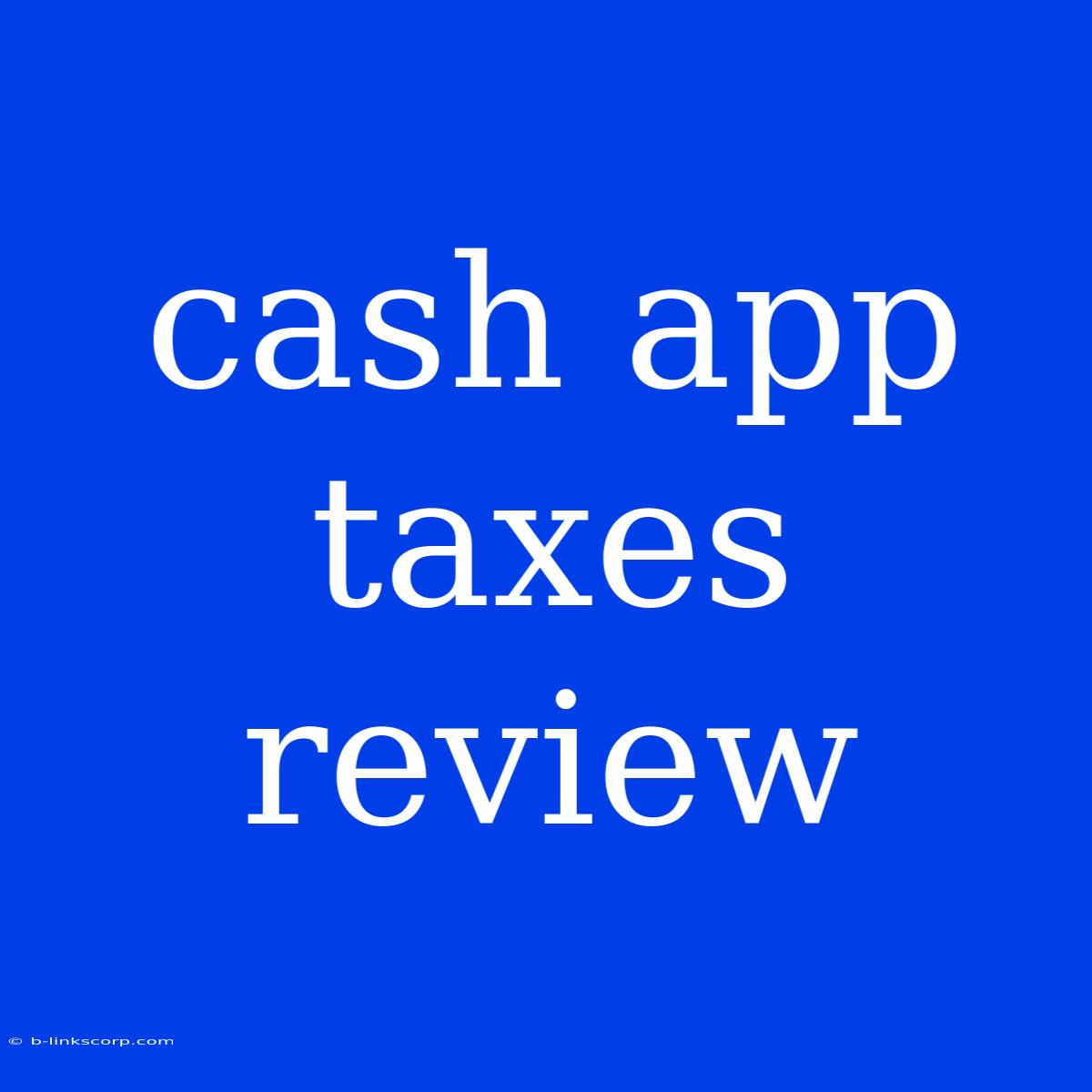Cash App Taxes Review: A Comprehensive Guide to Understanding Your Tax Obligations
Cash App has become increasingly popular for sending and receiving money, but it's important to understand your tax obligations when using the platform. This guide will help you navigate the complexities of Cash App taxes, including:
1. What Transactions Are Taxable?
- Income: Any money received through Cash App for goods or services, including freelance work, selling items, or receiving payments from customers, is considered taxable income.
- Investments: Capital gains from investments, such as buying and selling stocks or cryptocurrencies, are also taxable.
2. How Does Cash App Report Income?
- Form 1099-K: If you receive $20,000 or more in payments through Cash App and at least 200 transactions, Cash App will issue a 1099-K form. This form reports your gross income received through the app.
- Other Income: For income received without a 1099-K, it's your responsibility to track your transactions and report them on your tax return.
3. Cash App Tax Features
- Cash App Taxes: This feature helps you track and report your income, calculate your tax liability, and file your taxes directly through Cash App.
- Tax Filing: Cash App offers an easy-to-use tax filing process that integrates with TurboTax.
4. Reporting Cash App Income
- Schedule C: If you're self-employed or have business income, you'll need to report your Cash App income on Schedule C of your Form 1040.
- Schedule D: If you have capital gains or losses from investments made through Cash App, you'll need to report them on Schedule D of your Form 1040.
5. Cash App Tax Tips
- Track Every Transaction: Keep detailed records of all your income and expenses, including dates, amounts, and descriptions.
- Consult a Tax Professional: If you're unsure about your tax obligations or need help with filing your taxes, consult a qualified tax professional.
- Understand the Rules: Stay updated on any changes to tax laws and regulations related to online payment platforms.
6. Conclusion
Cash App offers convenient services, but using it for income and investments comes with tax obligations. By understanding the rules, tracking your transactions, and taking advantage of Cash App's tax features, you can navigate your tax responsibilities confidently.
Remember, it's your responsibility to comply with tax laws. Don't avoid reporting your Cash App income, as this can result in penalties and fines.

